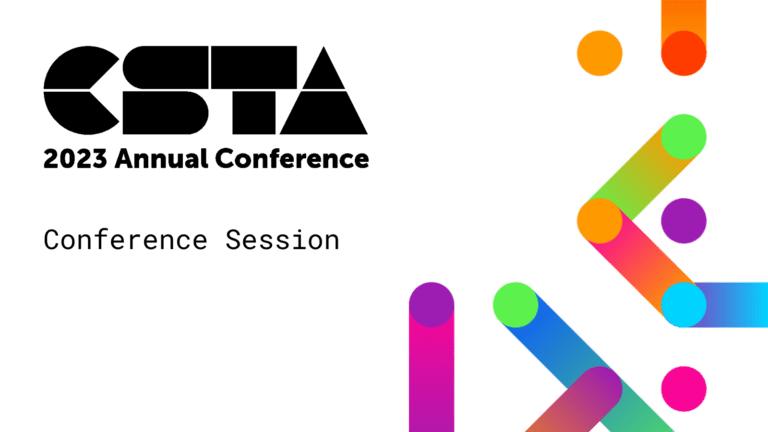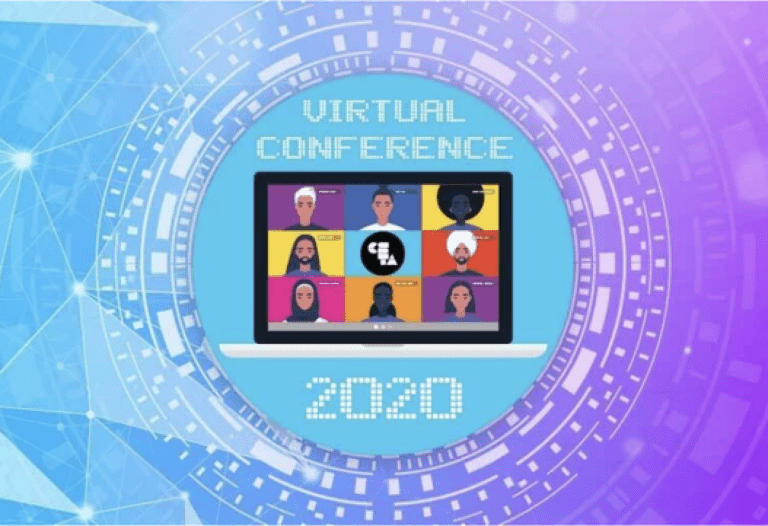Resources Library
Looking for a specific resource or have one you’d like to suggest?
FEATURED RESOURCES

Read How to Counter Stereotypes to Improve Equity in CS
We all know girls can do computer science, so why don’t they want to? Despite years of effort, gender gaps...

Read How to Build Tony Stark’s JARVIS Workshop
Have you ever dreamed of creating your own version of Tony Stark’s virtual assistant, JARVIS? Do you wonder how OpenAI...

Read Truffle Hunt: Teaching an AI Agent to Play a Minesweeper-Based Game
We will demonstrate a web-based game, Truffle Hunt, which illustrates rule-based AI systems that reason and solve problems. Players employ...

Read Teaching AI to High Schoolers Inclusively: AI4ALL’s Open Learning Program
This mini-session describes the AI4ALL Open Learning program’s blended curriculum and its results. AI4ALL Open Learning makes AI education free...

Read Matlab: Introducing Programming in a CS or Traditional Science Class
Matlab is a numerical computing and modeling environment widely used in the engineering fields. For many college engineering students, Matlab...

Read Moving toward Individualized Learning in High School Computer Science Classes
How do you keep your advanced computer science students engaged without leaving the struggling students behind? Juggling differing CS ability...

Read Nifty Assignments
When students learn best and when we feel best as teachers are the moments when an engaging assignment or class...

Read Our Code From Miles Away: CS via Distance Learning
Continue to reach your CS students and give them the experiences and valuable feedback they deserve during school closures. Push...

Read Pre-Coding for Pre-K: Exploring Unplugged Activities in a Home Setting
In this session, you’ll learn about our experiments with teaching pre-coding concepts to our own pre-K children. You’ll also get...

Read Programming Art
Computer science can teach math and allow students to create art projects of their own design. Learn how to use...

Read Programming Art to Learn Math
Computer science, mathematics, and art can be combined for powerful learning. This session will introduce participants to the free web-based...

Read Programming Music: The Computer as an Instrument
In this session, attendees will relate basic programming concepts to music creation. Attendees will leave the session with tools to...

Read Reach All Learners without Sacrificing Rigor: Let’s Differentiate!
You’ve been there: In any given lesson, the majority of the class may be keeping pace, while a handful of...

Read Reading to Learn in Computer Science
Reading is an integral part of the sciences, including computer science. Even when students don’t have a textbook, the cry...

Read Ready-Made, Research-Based Computational Thinking Curriculum for English Language Learners
This session will introduce a free Scratch-based computational thinking (CT) curriculum for English language learners in grades 3–5. The curriculum...

Read Recognizing and Responding to Biased Statements
In this interactive session, attendees will play a research-based game entitled Microaggressions: The Game! In small groups, one attendee draws...

Read Rethinking Middle School Coding Curricula
The past decade has witnessed a rush of new computer science and coding resources. Arguably, much of this energy has...

Read Robot Stories: Computer Science in Language Arts (and Vice Versa)
As teachers are asked to include more and more into their daily instruction, it’s easy to get overwhelmed! This can...

Read Scaffolding Student Creation of Computational Artifacts
Having students create their own computational artifacts can be an intimidating task. Learn about one approach to scaffolding a computer...

Read Scratch Encore: An Intermediate Scratch Curriculum Balancing Equity and Advanced Computing Content
As more and more introductory computer science courses are being taught in K–8 classrooms, there is an increasing need to...

Read ScratchEd Meetups: Participatory Professional Learning for Teachers!
Scratch is the most popular programming language for children, with over 46 million registered users. With Scratch, young people can...

Read Software That Runs on People: Computational Thinking in Board Games
Board games require players to follow algorithms, track variables, and execute controls in loops of taking turns. In this session,...

Read Speaking a New Language: Teaching CS to ELLs
As a trending area for students to explore, computer science includes an increasingly diverse group of learners. According to the...

Read STEM-Based AI Education in Professional Development for K-12 Teachers
AI represents a critical growth area for professional development programs for K–12 teachers, yet resources and training to support this...


